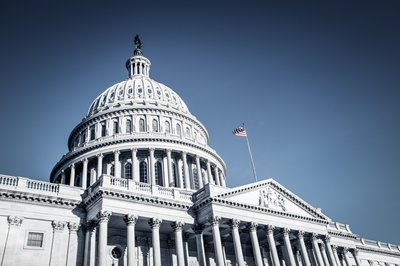
There's a growing consensus that a government shutdown may occur on or around November 17, 2023, and that if the shutdown
occurs, there will be significant implications for public and private contracting businesses and the construction industry. Also harmed will be general business operations and the economy. This impending government shutdown would mark the fourth in a decade, with Members of Congress from both sides of the aisle using a shutdown to advance their own policies. While the strategy has consistently proven ineffective and irrational, it's Congress!
Government shutdowns have significant microeconomic repercussions, impacting sectors such as:
- clinical research,
- law enforcement,
- national parks,
- visa and passport processing,
- services for American veterans, and
- federal contractors.
- contractors working on federally assisted projects.
A government shutdown at any point in this fiscal year would mark the fourth shutdown in a decade and the sixth since 1995. In each case, the government was shuttered because a portion of Congress (always on a partisan basis) refused to support legislation to keep the government open, absent some change in spending or policy. In other words, a small group of policymakers leverage the "must-pass" legislation to keep the government open to secure their priorities. While members of both parties have attempted to leverage shutdowns, no one has successfully used a shutdown to change policy in at least the last 25 years.
The last government shutdown, from December 2018 to January 2019, was 35 days long, two-thirds more prolonged than the previous record of 21 days in 1995/96. This time, it is more difficult to predict the duration as we have a narrower majority margin and a far more fractured political environment within the House Republican majority, largely at odds on almost every issue. The most compelling reason to temper those approximately two dozen on the extreme right in the House GOP is the increasing need to approve emergency disaster aid funding. These factors could bring a shutdown to a quick end, but those pressures may be insufficient to motivate irrational minds.
During a shutdown, mandatory spending continues, and while discretionary spending halts, when the government reopens, federal employees and agencies are made whole, meaning total federal spending is unchanged.
- In a 2018 report, the non-partisan Congressional Research Service detailed past government shutdowns' impacts. A quick review indicates contractors are impacted.
Notably, federal contractors are too often the uncompensated victims of a shutdown unless their contracts have been forward-funded and secured against a shutdown. Each contract varies in funding stream, so contractors need to check now and prepare for their specific circumstances.
- Bottom line: Contractors must assess their contracts and business relationships with the government and be ready for the coming weeks of uncertainty and possible contracting disruptions. As hard as it may be to avoid a shutdown in the current environment, it would be even harder to get out of an extended shutdown.
- Frequently Asked Questions During a Lapse in Appropriations
- Congressional Research Service detailed the impacts of government shutdowns.
*Questions? Contact - skolbe@smacna.org